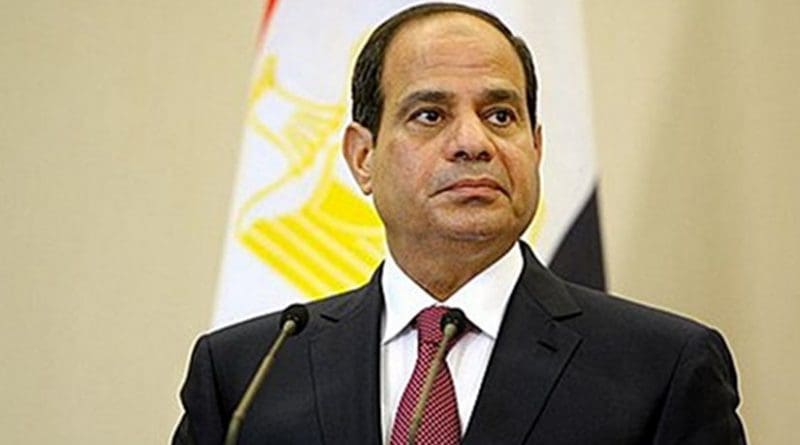Position Of Islamist Groups Under Sisi: Is Egypt’s Parliamentary Elections The End Of Salafists? – Analysis
By Iran Review
By Mohammad Reza Ashouri-Moghaddam*
Results of recent parliamentary elections in Egypt have been unexpected for many political observers. Apart from criticism about the way these elections were held and the ban on the activities of such opposition groups as the Muslim Brotherhood, the heavy defeat suffered by the al-Nour Party, which is the political branch of Egypt’s Salafist current, drew a lot of attention from various political circles. Out of 120 candidates nominated by the al-Nour Party, not even one could win in the first phase of the elections, which is considered a major defeat on the party’s track records.
The records of Egyptian Salafists were quite brilliant in the country’s first parliamentary elections following the revolution in 2011. In those elections, the al-Nour Party managed to win 22 parliamentary seats to rank the second following the Muslim Brotherhood in the elections. Within only a few months, Salafists rapidly emerged as an effective and essential player in the arena of political developments in Egypt. Presence of the leaders and activists of the Salafist current was quite evident from decision-making centers to various media circles.
However, the overthrow of the Muslim Brotherhood-affiliated former president of Egypt, Mohamed Morsi, by General Abdel Fattah el-Sisi in 2013, faced Salafists with very difficult elections. They, therefore, decided to distance from the common approach of Islamist forces and support Egypt’s military, thus, disappointing the Muslim Brotherhood and other allied Islamist groups. They also announced officially and proved practically that they had no problem with the ruling military junta and supported General Sisi as president. In doing so, Salafists hoped that they would be able to get very good results in the parliamentary elections through their support for the military government.
Apart from low voter turnout in the elections, it is evident that Salafists did not face much limitations in their political activities and election campaigning, in spite of which they have experienced a bitter defeat. Now, the question is “can these elections, as described by many media circles, be a sign of the end of the political life and popular base of the Salafist current in Egypt?” Have Salafists in this Arab country lost their lucky star?
In answer to this question, one must say that this is not necessarily the case and such a conclusion cannot be categorically drawn, because various factors and conditions have been playing a role in bringing about this historical fiasco. One of the most important of these conditions was the media atmosphere created against Islamist parties and currents after the fall of the Muslim Brotherhood-affiliated government in Egypt and even across the region. In reality, the support accorded to Egypt’s military government by the Salafist current failed to help Salafists get satisfaction and support of the public opinion. At any rate, the decision to support Egyptian military was made by leaders of the al-Dawa al-Salafyia, including Yasser Borhami, who have accepted the responsibility for that decision, and are now being strongly chided by other Islamist groups.
On the other hand, the political behavior of the leaders of the Salafist current in the past two years has not matched their claims and has portrayed an image of this group, which is characterized by “opportunism” and a “contradictory discourse” in the face of political developments in the country. Such contradictory behavior has cast serious doubt on the honesty of the leaders of the Salafist current in the public opinion of Egypt, so that, many political observers believe that leaders of this current cannot be considered as politicians with fixed principles and discourse. As a result, they prefer to continue seeing those leaders as religious preachers and orators.
However, apart from all these facts, it seems that the most important reason behind this phenomenon should be sought in the “political jurisprudence” of al-Dawa al-Salafyia; a jurisprudential school, which is extremely weak in understanding political realities and components of power. In order to avoid government suppression, as happened to the Muslim Brotherhood, the Salafist current has been plagued by a contradiction and tried to justify its obedience to the military rule by resorting to, and actually misusing, a jurisprudential rule, which says “when there is a harm, heading off that harm is more important than ordinary expediencies.” As a result, the Salafist current ended its coalition with other Islamist groups. Many observers today compare this apparently “pragmatic” justification by Salafists with their past efforts to find fault with Morsi’s government on such grounds as dawdling in integrating Sharia law into the Constitution, making effort to improve relations with Iran, and putting pressure on him to challenge liberal and military elements. The observers then reach the conclusion that such claims do not go hand in hand with the Salafist group’s alliance with a secular government and a ruling system that is opposed to the implementation of the Sharia law.
At any rate, it must be noted that the recent election failure cannot be considered as an end to political life of Salafist current in Egypt. The Salafist al-Nour Party has experienced serious internal rifts in the past, which led to major division in the party as a result of which many members quit party membership. Even today, many leaders of the Salafist current are opposed to the policies adopted by this party and are also opposed to measures taken by the Egyptian military. However, the point that must be emphasized with regard to the results of Egypt’s parliamentary elections is that the name of the Islamist currents in the political chess of Egypt has been registered among the opponents of the government of “General Sisi” and any group belonging to the Islamist current, be it Muslim Brotherhood or a Salafist group, which wants to continue to survive under government’s support will not have a powerful popular base in Egypt.
*Mohammad Reza Ashouri-Moghaddam
Islamist Groups Analyst
Source: Iranian Diplomacy (IRD)
http://www.irdiplomacy.ir/
Translated By: Iran Review.Org

